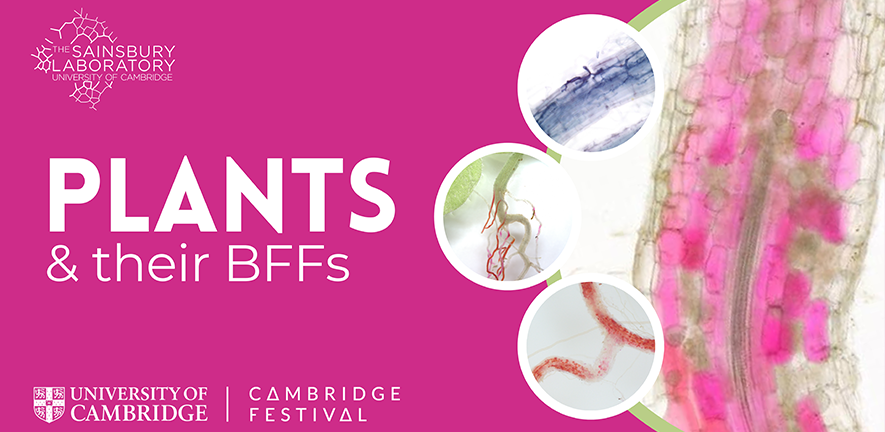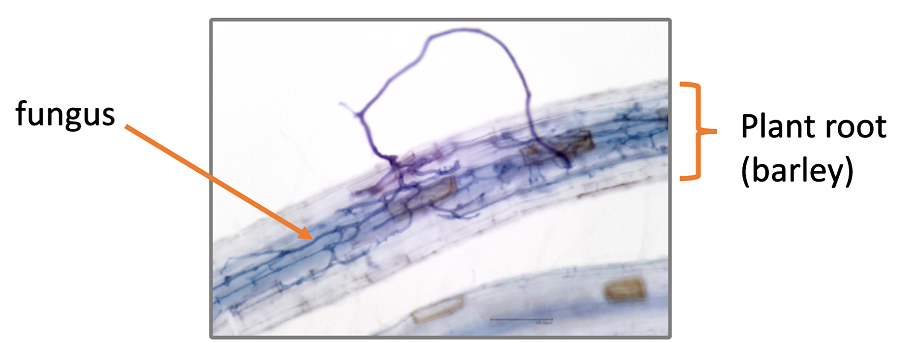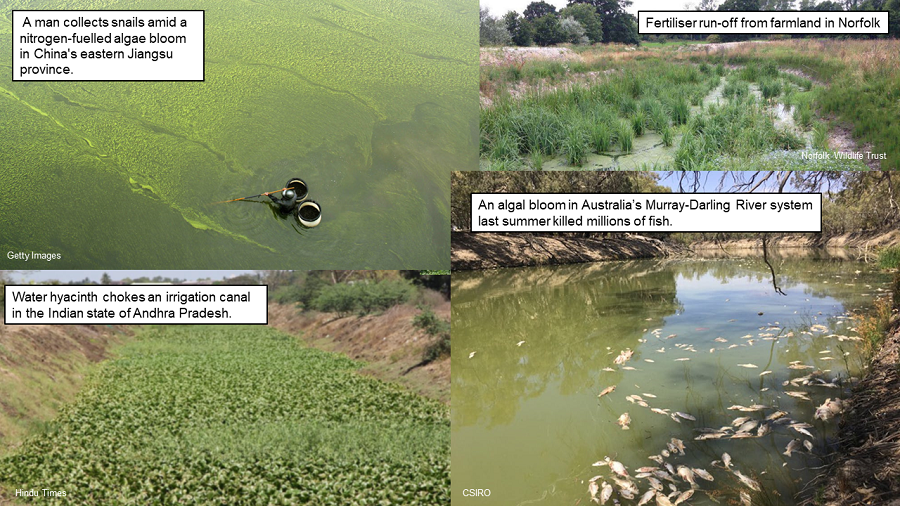
Plants and their BFFs
You spend time communicating and sharing with your friends. Guess what, plants do too, with fungi!
Join scientists from the Sainsbury Laboratory Cambridge University as we explore this fascinating relationship between plants and their best fungi friends (BFFs). You will practice scientific skills, generate data to analyse and work with real lab equipment.
DATE: Saturday 25 March 2023
VENUE: Sainsbury Laboratory Cambridge University, 47 Bateman St, Cambridge CB2 1LR
DETAILS: You will undertake scientific experiments and carry out data analysis in the lab with our scientists. This event is suitable for those aged 10+.
Click here to book your entry tickets for Plants and their BFFs
What to expect during your visit
Almost all crop plants form associations with a particular type of fungi – called arbuscular mycorrhiza fungi – in the soil, which greatly expand their root surface area. This mutually beneficial interaction boosts the plant’s ability to take up nutrients that are vital for growth.
Together, we will explore the intimate underground relationship between plants and fungi and the secrets they share with each other.
Harnessing the power of one of the Sainsbury Lab's latest discoveries that makes fungi visible, you will have the exciting opportunity to see with your own eyes where fungi live inside plants.
Have a peak through the microscope to see the tiny structures fungi build inside root cells. You will then use an Artificial Intelligence (AI) software program developed in our lab to measure how much of the plant root is colonised by fungi.
Additionally, you will get first-hand experience in analysing the growth of plants with different diets.
Will the help of their fungal friends allow them to grow bigger?
The Phosphorus dilemma
Phosphorus is one of essential minerals in fruit and vegetables that we need to build our bones, teeth and even our DNA.
We find phosphorus in the soil and plants absorb phosphorus from the soil via their roots. However, not all types of soil have phosphorus immediately available. In this case, plants can use the help of fungi to either break-down or reach out to other phosphorus sources.
Synthetic sources of Phosphorus
In agriculture, phosphate fertilisers are used to promote plant growth. Unfortunately, the over-use and run-off from fertilisers can cause severe environmental problems, including algal blooms.
But what are our alternatives if we want to grow healthy vegetables and crops? Can we utilise the natural interactions between plants and fungi to promote plant development?
If you want to follow up on this question and many others around the topic of plant development and plant-microbe interactions, please sign up to our Plants and their BFFs event (#PlantsBFFs).


